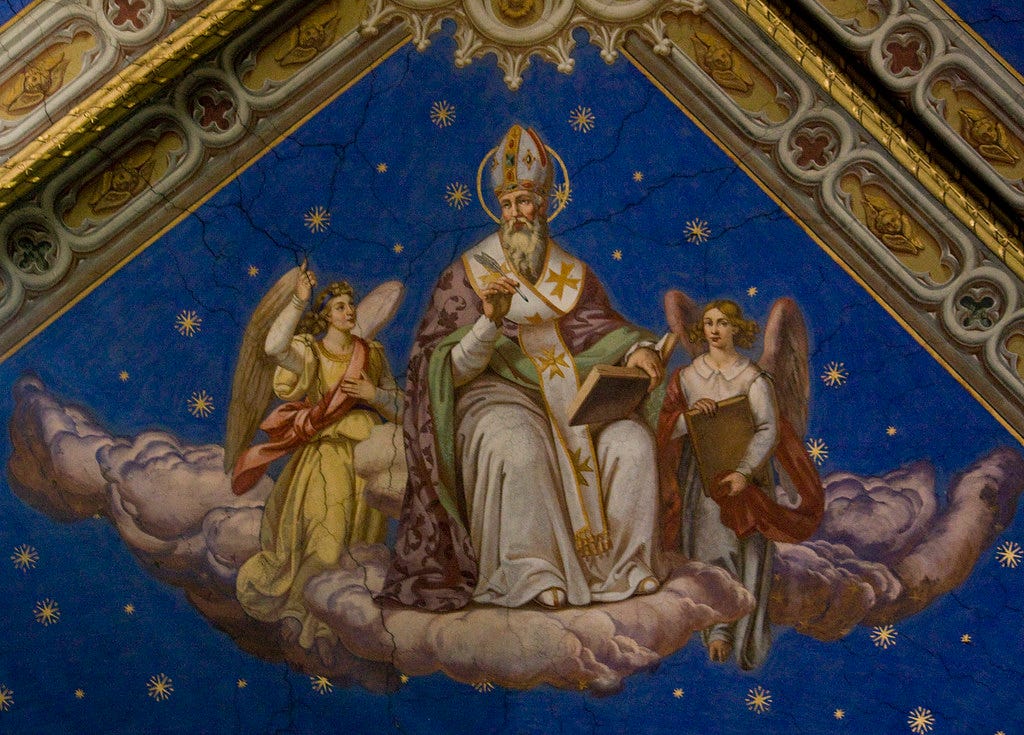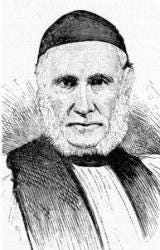Your soul is a city over which Christ weeps
From The King of Salem, by Isaac Williams (1875) hymn of St Ambrose
Fr Isaac Williams (1802-1865) was another Oxonian, a Welshman skilled in Latin verse. It was thanks to a prize he won in Latin composition that he met Fr John Keble, who admired his work and became his spiritual father, leading him and other students of like mind in annual retreats for many years. Known better now for his hymns than for his extensive publications of verse and prose, the latter were more highly regarded in his day.
This extract from one of his sermons on the First Sunday of Advent returns our minds to the Lord’s entry into Jerusalem. Here he draws the parallel of Jesus’ weeping over Jerusalem with His more famous tears over the death of Lazarus, His friend. I find it an unconventional but compelling departure from the “double comings” we have read about so far. Instead, Fr Williams urges us this Advent to cleanse our churches of sterile and false worship, to return to true worship of God, and by extension, to open the cobwebbed tabernacles of our hearts to the table-turner’s cleansing fire. When we show the extent of our neglect, yes, Jesus weeps: but by His tears, we are healed. —T.P.
And when he was come into Jerusalem, all the city was moved, saying, Who is this? And the multitude said, This is Jesus the Prophet of Nazareth of Galilee
What were the feelings of our King Himself on this His great kingly coming; His entrance into His own festival city; His triumphal entrance as Conqueror of death? They also were suitable to this occasion of His great meekness, for St. Luke says, that when He came in sight of the city He wept over it. His entrance was meet for the “Man of Sorrows,” it was with a heart full of tears; as suited to Him who now in a few days was, by the hands of His own people whom He loved, to be lifted up upon His throne, and His title of King to be written thereon in every language, and this His throne was the shameful and painful Cross. He wept at the grave of Lazarus, because he was dead; He wept at the sight of Jerusalem, because it was as a whited sepulchre without, and within worse than dead.
Thus was He now approaching as one goeth on his way weeping. But as He moved the hearts of men to do Him this little appearance of honour, so did He also move His own city at His appearing, that they might afterwards, when they had crucified Him, know and remember how this was He to whom the Prophets had borne witness. And when He was come into Jerusalem, all the city was moved, saying, Who is this? And the multitude said, This is Jesus the Prophet of Nazareth of Galilee. This was the answer of the multitude, for the common people were not ashamed of the lowly Nazareth, and the despised Galilee; while the fact of His coming from these obscure places was an offence to the great, and the rich, and the learned.
What a wonderful contrast is all this to His next appearing, for which we daily wait, when all the dead shall be moved at His coming, and all the living; when the sun, moon, and stars shall fall, and earth and Heaven shall take wing before His face, and when there will be no more asking, Who is this? For all shall know Him, from the least to the greatest—all shall know Him as “Jesus the Prophet “—the Prophet, indeed the more than Prophet, bringing about the fulfilment of all things—the Prophet of Nazareth of Galilee, Who rideth upon the Heavens as it were upon a horse; Who maketh the clouds His chariot; Who cometh with ten thousands of His Saints, when some He will “bring with Him,” them that are “with the Lord;” and some shall go forth to meet Him at His coming, the saints that are on earth. …
But what is the peculiar lesson which our Lord would teach us with such altered tokens of His gracious Presence? There can be no doubt but it signifies that it is of the very utmost importance how we keep holy the House of Prayer. This lies at the very heart of all religion; it is the very fountain-head and spring from which flows the stream of life, and if this be polluted, all must be full of hypocrisy and wickedness. Judgment must begin at the house of God. Surely there was great evil then in Jerusalem; in the councils of the Chief Priests, in the court of Herod, in the popular keeping of this festival; but one thing only made the wrath of the Lamb to burst forth as a flame anticipating the last Judgment, and this was want of reverence in God’s House. This is the most obvious and important lesson it would impress on us. Worship God aright, and all will be well. Come before Him without fear, and all your life will be as a city over which Christ weeps.
Since it is St Ambrose’s day, here is one of his hymns for the season:
An Advent Hymn of St Ambrose
O COME, Redeemer of the earth,
and manifest thy virgin-birth.
Let every age in wonder fall:
such birth befits the God of all.
Begotten of no human will
but of the Spirit, Thou art still
the Word of God in flesh arrayed,
the promised fruit to man displayed.
The Virgin’s womb that burden gained,
its virgin honor still unstained.
The banners there of virtue glow;
God in his temple dwells below.
Proceeding from His chamber free
that royal home of purity
a giant in twofold substance one,
rejoicing now His course to run.
O equal to the Father, Thou!
gird on Thy fleshly mantle now;
the weakness of our mortal state
with deathless might invigorate.
Thy cradle here shall glitter bright,
and darkness breathe a newer light
where endless faith shall shine serene
and twilight never intervene.
All praise, eternal Son, to Thee,
whose advent sets Thy people free,
whom, with the Father, we adore,
and Holy Ghost, for evermore. Amen.







⚜️Saint Ambrose of Milan, pray for us! 🌐 🐝 ☦️ 🍯 ✍🏼